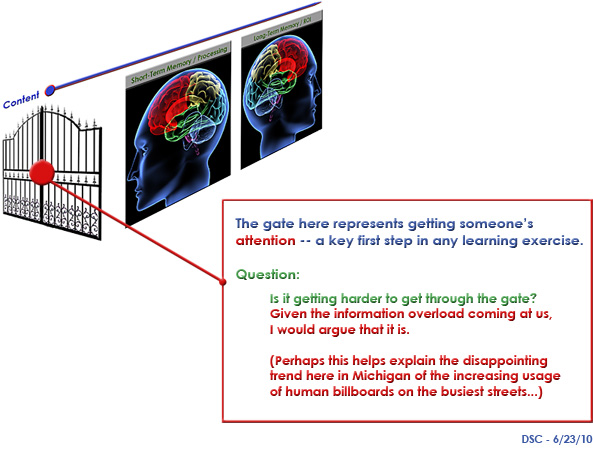
Also relevant here is the following graphic from All Kinds of of Minds’ e-learning module on attention
…

Also relevant here is the following graphic from All Kinds of of Minds’ e-learning module on attention
…
20 facts you must know about working memory — from The E-Learning Coach
Excerpt:
The Basics
Capacity
“With this in mind, here are a few sites that feature cognitive psychology podcasts, research, articles and news. I’m even sneaking in a few brain science sites for the true believers.”
“And just in case you’re new to this field, cognitive psychology is the discipline that examines our mental processes, such as attention, perception, memory and learning. Cognitive psychology uses an information-processing model to explain mental operations in computational terms. Your resources are below. Enjoy.”
From DSC:
Anyone who has followed my work knows that I am interested in digital storytelling. Why?
Thanks,
Daniel
Original posting from:
http://www.freetech4teachers.com/2010/01/digital-directors-guild-digital.html